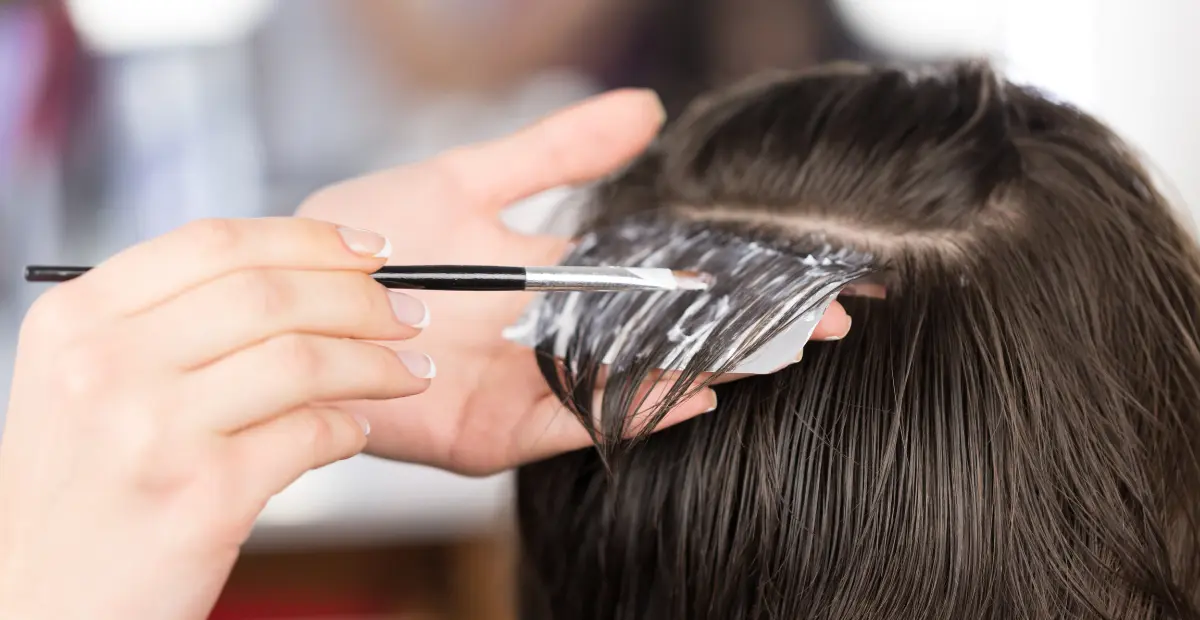The Great Dye-Off: Will My Hair Improve if I Stop Dyeing it?
If you have colored or dyed your hair and noticed that your hair has started looking unhealthy, you are not the only one.
Hair dying is a rage among people, especially youngsters.
According to the U.S. Census data and Simmons National Consumer Survey, 63.08 million Americans used hair coloring products in 2020.
But coloring your hair makes your hair dry, brittle, and frizzy. It also may result in split ends and hair breakage.
When you look at this type of hair, you may think of never coloring them ever again.
But does it really work?
This article will tell you the truth about whether your hair health will improve after stopping dyeing it or not.
Why stopping hair dye use is a good idea

Using dye on your hair results in many ill effects. Repetitive dye application may increase the damage caused to your hair.
So stopping its use might be a good idea.
Hair dye has the potential impact on the proteins and lipids present in the hair that support healthy hair.
Due to dying, modifications to the hair shaft’s inner and exterior structure can harm hair.
There may be some below-listed effects due to dye that might increase with repetitive use:
- Loss of hair strength
- Your hair may not be able to handle heat styling
- Reduced hair’s natural thickness
- Increase in the roughness of hair follicles
Moreover, your hair loss condition may improve if you reduce or stop using dyes on your hair.
A study was conducted on people who used hair dyes. Among them, 110 people suffered from adverse effects.
33.6% of people among them had faced hair loss.
Why will hair improve

A hair dye contains harmful chemicals that can make your hair unhealthy and prone to hair loss.
Limiting the use of hair dyes will also limit the use of chemicals applied to your hair.
Here’s a list of toxic chemicals used in hair coloring products that can harm your hair:
Titanium dioxide
Frontal Fibrosing Alopecia (FFA) has been associated with the use of Titanium dioxide.
FFA is a condition in which the hair follicles, openings from which hair grows, get destroyed.
In the Journal of the European Academy of Dermatology and Venereology, dermatologists found Titanium dioxide along a patient’s hair shafts with FFA.
Titanium dioxide accumulates on the scalp’s follicular surface and damages the hair.
Ammonia
Ammonia is an alkali used in your hair during the dying process.
It pulls apart layers of the hair’s proteins to make your hair dye last longer.
Due to this process, the hair might lose its moisture content.
But moisture in your hair is essential, as it helps prevent hair breakage and tangles.
Also, this can help retain your hair’s length and continued growth.
Triethanolamine
Triethanolamine can irritate the scalp and damage the Keratin, a vital component of hair.
Due to this damage, your hair can become dry and brittle, making it prone to breakage.
Mica
Mica is used in hair coloring products. But it may lead to hair loss, formally known as Alopecia.
A Journal of the American Academy of Dermatology study found a relationship between Alopecia Areata and Mica.
Hydrogen peroxide
Hydrogen peroxide is an oxidative agent used in bleach.
Bleach is a key product used in the hair dyeing process.
As it is an oxidative agent, it may increase the oxidative stress.
If you have had oxidative stress for quite a long time, it can damage your DNA and other vital molecules. Sometimes it even leads to cell death.
A study conducted in 2018 stated that oxidative stress can lead to premature hair loss.
So if you have already used dye once, try not to repeat it, as it will only increase the damage.
Takeaway
Dyeing your hair can cause harm to your hair.
So you may consider stopping its use to improve your hair health.
Limiting the use may prevent hair from further damage caused by repetitive hair coloring products.
The chemicals used in hair dyes, like Titanium dioxide, Mica, Ammonia, Hydrogen peroxide, etc., can cause severe effects.
It can make your hair dry, brittle, and frizzy. This type of hair is prone to breakage.
Thus, to avoid additional harm, it is preferable to limit or discontinue the usage of hair coloring.
However, you do not need to worry as you can still dye your hair with natural ingredients or products.
Frequently Asked Questions
Will not coloring your hair help it grow?
Coloring or not coloring your hair won’t have any effect on the growth rate of your hair. The reason is that hair dyes don’t impact hair growth. They make your hair dry, dull, frizzy, and prone to breakage. This leads to hair fall. Thus, you shed more hair than you lose.
Will my hair get thicker if I stop coloring it?
Hair coloring may cause severe damage to your hair shaft, leading to hair thinning. But hair dyes give a coat of color to your hair. It gives an illusion of thickness and volume to your hair. So, when you stop hair dye use, you may notice that your hair has become thinner.
At what age should you stop coloring your hair?
When to stop using hair color or dye is your choice. But it’s advisable to limit its use as it may cause severe effects on your hair, leading to hair loss. When you start noticing that your hair has become extremely dry and falling out regularly, it’s time to halt.
WowRx uses only high-quality sources while writing our articles. Please read our content information policy to know more about how we keep our content reliable and trustworthy.






